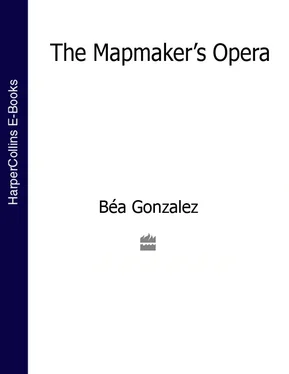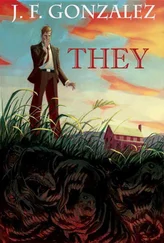The English kept coming to the store, though the tours were cancelled, Diego being too young for the task. In any case, his knowledge of English was still poor and he had no desire to be trotting about Seville with a group of foreigners bent on a bit of culture after a morning of hunting in the Andalusian countryside; he could not but feel badly for all those dead bustards, the deer, the red-legged partridges and the wild boars.
Without Emilio, the bookshop fared even worse than before. They were reduced to selling the standards of old—the French and Spanish dictionaries of Nuñez de Taboada, the Arte de la Lengua Arábica of Pedro de Alcalá, paper made of linen, which pleased the Englishmen who were used to the inferior product sold in their own country, paper fashioned from cotton rags.
Uncle Alfonso rarely descended from the attic to help mind the store—there was no need for it, he reasoned; his own life was sure to end any day, his rheumatic legs were a torture and he could no longer boast of the sharp wits that had once astounded those who knew him—many of whom were now long dead.
It was easy to grow used to the silence that had emerged in the aftermath of Emilio’s death and hard to recall what all the fuss had been about during all those years of recrimination and strife. Silence such as this was bliss, a pocket of heaven in an often-wretched earth. Sí señor , we should have arrived here long ago, Uncle Alfonso told himself, happily almost. But then he would find himself looking into the eyes of la señorita de La Mancha, and looking into those eyes he would see that for all the amiability that now spilled from her once too-tight lips, those eyes were painting a much different picture instead.
You have won for now, old man, they were saying, but it won’t always be like this.
Mónica had a plan. It had entered her head even before Emilio had breathed his last—a guilty sin, a sacrilegious thought weaving its way through her grief, but a welcome solution nonetheless to the sudden tragic turn of events.
Without Emilio there would be no reason to hide the truth from the boy, to continue misleading him about who his father really was. The time had arrived for Diego to learn that he was not the son of a humble bookseller but of a man of means—that he carried the proof of it in his name, Diego—the name of Don Ricardo’s own beloved father. It was the only request Don Ricardo had ever made with respect to the boy and one she honoured, ignoring Emilio’s dismay and the fact, too, that Don Ricardo already had a son named Diego, named, claro, of course, also for his beloved papá.
“There is nothing in a name,” she told Emilio when Emilio, timorous and bookish yes, but capable of feeling the slightest injury in the core of his being, mouthed his objection to this. “A name means nothing in the end,” she had argued then, but deep down she felt quite the opposite to be the case. The name Diego would connect her son to Don Ricardo, would keep the flames of her hope alive. Perhaps there could still be a marriage in the end. Perhaps Doña Fernanda would finally succumb and things would be put in their proper place—Diego would be returned to the home that should have been his from the start.
What would happen to Emilio she had not considered at that time. She never envisaged his death—she dreamed only half-truths and half-dreams where the barriers to fulfillment merely melted away. It was a dream that had nurtured and comforted her through all those years with Emilio, all those miscarriages, the stillbirths and the two-week-old deaths. It was a thought that had steeled her against the onslaught of the old man and his broom sitting up in the attic, composing the next aria to spice up the opera between them.
She did not reveal the secret just yet. Instead, after years of unwilling neglect (she would justify her indifference up till then by telling herself that Diego had been inseparable from Emilio, that only now, in his absence, could she begin to forge a relationship with her son), she began to hold Diego for the very first time, began to kiss him as if he were not a young man of fourteen but a baby of no more than one. All those wasted years, she told him. All that lost time.
And to lead him into the story that would irretrievably, irrevocably change his life, she began by telling him not of Don Ricardo, as you would imagine, but of her nostalgia for the smell, the taste, the feel of a purple plant.
Saffron. In Spanish, Monica’s beloved azafrán.
“From the Arabic, Mamá,” Diego told her when she embarked upon the story. “To be yellow— za’fran. ”
“Very interesting, hijo, ” she replied. “But not so important to the tale I’m about to tell.”
Ah, but how fine things were once, she lamented. How miserable she was without the taste of a paella that could boast of a generous quantity of the spice—part flower, part bitter herb. Once this had been the world she had inhabited—a governess in a beautiful home where no paella or winter stew was deprived of the colour and the taste of saffron because that was a house of means, a house that did not have to resort to substitutions—the vanilla and rose water that often masqueraded as the real thing in inferior homes.
The price of an ounce of azafrán was equal, even then, to an ounce of gold.
“But even before that, much before that,” she told him, “the taste of saffron saturated everything in my life.”
This was how the recipes for the famous stews of Mónica’s aunt, Bautista, came to land in our own hands. Because for months before Diego was told of the truth, he was forced to hear the lengthy descriptions of the ingredients that went into the dishes that had consumed Mónica’s early life. It was an expiation for her, perhaps—we all need, it is true, to revisit that point on the map where things began—but it was baffling to Diego, who could not understand why his mother needed so desperately to tell these stories, who battled the pleasure he felt in his mother’s arms, the embraces she had neglected to give him as a child that were offered so freely now, and his embarrassment, “Mamá, por favor, I am not a child,” he would say when she reached out to embrace him, reached out to touch the skin that had sorely missed a mother’s touch until now.
A child no longer a child but longing, at times—as we all do—to remain one for life.
Of all Mónica’s memories, the ones that would persist with Diego would be her stories of the great harvests that took place in mid-October before the chill set in, and that would culminate with the Feast of the Rose—a celebration that contained the essential ingredients of any good Spanish fiesta —the food, the music, the games and the unusual number of unruly drunks who sang until all hours of the morning, songs in honour of their beloved mothers or cherished sweethearts and sometimes, as in the case of Ignacio Aguirre, a neighbour and not totally sane of mind, songs in honour of a much-beloved goat.
“The work would start at dawn,” she would begin, “and when the men, women and children congregated in the fields to commence the task of picking the flowers before the sun rose and burned them with its rays, the excitement was palpable in the air as if they were there not to work but for a pagan celebration in honour of those flowers with their miraculous stems. In the afternoon the work would continue as the petals were separated from the threads—an arduous task—for even the most experienced man would find it hard to strip one thousand of these small flowers in one hour and it takes thousands of them to make just thirty grams of azafrán. In the evenings, the stems would be placed to dry over horsehair sieves warmed above tepid, half-spent coals.
Читать дальше












